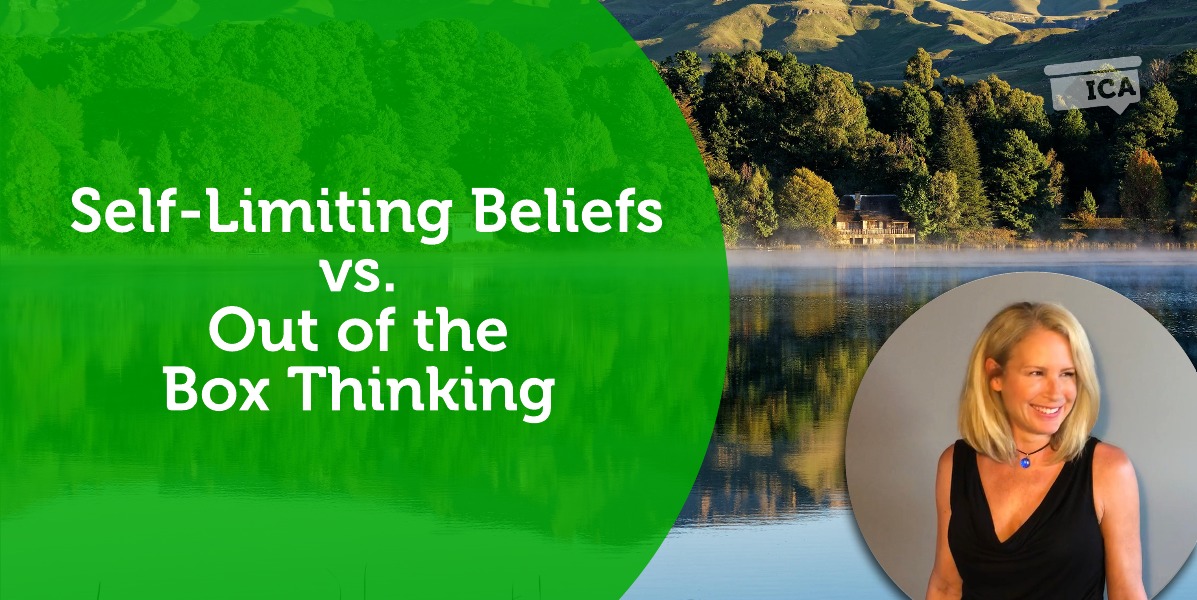A Coaching Power Tool Created by Amy Lechelt
(Transformation Coach, UNITED STATES)
Beliefs form the box that everyone seems to want to think outside of. So if you really want to know how to succeed, you better start challenging your own beliefs. Stever Robbins, Harvard Business School

Have you ever stopped to consider the difference between your belief/s vs. your reality? What if you were to consider belief is based on emotion, rather than fact-based? As well, possibly nature vs. nurture or values that were imposed upon you when you were a child. If you were to open yourself to endless possibilities, what then would hold you back from achieving what you most desire? What would keep you stuck from achieving what you have deemed impossible?
To put it simply, self-limiting beliefs are assumptions or perceptions that you’ve got about yourself and about the way the world works. These assumptions are “self-limiting” because in some way they’re holding you back from achieving what you are capable of. Andrew Blackman, for Envato Tuts+
Based on my own life experiences, at one point in time, I found myself looking at an unmovable wall. Which, by the way, the wall was ME. A fifty-seven-year-old empty-nester, full-time wife, and independent contractor, living abroad part-time and going through a divorce, I had hoped would never come to fruition. The “life”, I was living was “perfect”, on paper, and viewed as such to those around me. However, as a victim of domestic violence, familial-marital-values, judgments, ignorance, and loss of confidence, I found myself with self-limiting-beliefs that seemed unsurmountable at the time. I was truly feeling stuck. However, while tapping into my emotions, I discovered some underlying perspectives at play. For example, for me at that time, fear. By exploring the emotions underlying my fear, I was able to reframe my perspective, empower myself, and realize I had choices in creating action to move forward. Additionally, by shifting my beliefs based on experiences shaped from my past, it opened up thought to what was currently true. I began with a blank sheet of paper in creating mine now. An open box, if you will, to explore further. Other possible tools to aid in the shifting of perspective may be visualization, a change in daily patterns, re-consideration of life-long winning-ways that no longer serve you, journaling, meditation, Enneagram, DISC, and Myers Briggs.
Consider:
If you accept a limiting belief, then it will become a truth for you
Louise Hay
Smile at your critics for they have yet to see the universe that exists outside the box
Paul Bradley Smith
Thinking outside the box (or as they say in Australia, “thinking outside the square”), may provide a powerful tool in shifting one’s perspective and possibly create desired change and action. I pose the following questions for example: What endless possibilities could be realized if we were to challenge ourselves to think differently? What could be created if there were no actual self-imposed boundaries or beliefs? What if Steve Jobs, Thomas Edison or Walt Disney, for example, were not curious and freethinking?
We may feel insecure when considering our innermost or hidden desires. However, powerful questions such as these may help empower one’s self to move forward: What are your expectations? How would it feel to trust yourself with this process? What if you removed the word “can’t” from your vocabulary? What would be possible then?
Instead of thinking, “why me?”, think “why NOT me?” beidealyou.com
I have often pondered the word “but”. Such a simple word, but can negate everything that was stated prior. (If this resonates with you, in the future this may alter your hearing this word without a bit of thought!) For instance, an actor pays special note to the use of this word in his script as it changes the direction of the over-all thought. Consider if you were to say “I want to do XYZ, but I don’t think it’s responsible”. I wonder, what does being responsible mean to you? Is this true or a belief? Or, “I want to live on a beach, but I know it will never be possible”. BUT, what makes it impossible? In opening the sides of one’s self-made box, imagine the possibilities and take action…
Perhaps one of the most profound effects of thinking outside the box is that it will help you stay adaptable. Your mind won’t be closed off to new ideas or solutions or situations, and therefore you’ll be better able to navigate the ever changing landscape of business. entrepreneur.com

